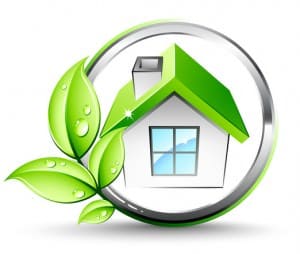Recycling refers to the process of turning used materials like paper, glass, plastic, electronics, metal, automobile materials, hazardous materials, and textiles into new products. One of the key steps in effective recycling is the thorough clean out of items before they are recycled, ensuring that they are free from contaminants that could affect the process. As the world’s resources are dwindling, recycling helps to decrease the use of new raw materials and prevent the wastage of materials which can be used again. In reference to global warming, recycling plays a part in the reduction of air and water pollution, energy usage, greenhouse gas emissions, and the regular process of waste disposal. By cleaning out and sorting materials properly, we can maximize the efficiency of recycling efforts and minimize environmental impact.
In the 3Rs of the waste hierarchy known as “Reduce, Reuse, Recycle”, recycling is the third component. The concept of recycling revolves around the idea that used materials can be recycled into some fresh materials, which can be used in the production of new products. In an ideal situation, used cans can be recycled into new cans and used glass can be converted into new glass. From a technical standpoint, such a recycling process can be difficult, or even impossible in some cases. Economically, the process may prove to be even more costly than the manufacturing of the same product by using fresh raw materials or other alternatives. In reality, many materials and products are “recycled” by being reused in the production of other types of materials.
Recycling also refers to the salvaging of some types of materials from products such as car batteries, computers, electronics, and so on. Typically, gold can be found in some computer components, lead can be found in car batteries, and mercury can be found in various items. To ensure that there’s a large constant supply of materials to be recycled, there are three legislative options, namely, container deposit legislation, mandatory recycling collection, and refuse bans. Most people are familiar with container deposit legislation where they get a refund for returning certain containers which are usually made of plastic, glass, and metal. In mandatory recycling collection, a specific recycling target is set for cities, which is to be achieved by a target date. As for refuse bans, the government makes it illegal to dispose of certain materials like old batteries, used oil, garden waste, and tires as waste. To facilitate the collection of recyclable materials, there are drop-off centers, curbside collection, and buy-back centers. Here are some resources to help you learn about recycling.
Automotive Materials
- Automotive Battery Recycling in Pennsylvania
- Information on Used Motor Oil Collection and Recycling
- How to Recycle Used Motor Oil (PDF)
- FAQs about Scrap Tires Provided by EPA
- Media Kit on Oil Filters & Absorbents Recycling
Construction Materials
- Learn About Recycling Construction and Demolition Materials
- A General Guide to Recycling of Construction Materials
- How to Recycle Construction Bricks & Blocks
- Recycling Carpet in Construction and Demolition Projects
- A Guide on Pallet Recycling for the Private Sector (PDF)
Electronics
- Information About Recycling Electronics
- A Guide on Recycling Wireless Telephones
- Computer and Electronics Recycling in Virginia
- Why Recycle Computers, DVD Players, TVs, and Other Electronics?
- TV and Computer Recycling in Maine
Gardening Materials
- Learn How to Reduce Yard Waste
- How to Recycle Newspaper to be Used as Mulch in Garden
- Recycling Info for Fertilizers
- Using Earthworms to Make Organic Fertilizer
- Step-by-Step Guide to Composting
Glass
- How is Glass Recycled
- Recycling Glass (PDF)
- Interesting Facts about Recycling Glass
- Guide on Recycling Clear, Brown, and Colored Glass (PDF)
- Recycling & Reusing Glass Ornaments
Hazardous Materials
- Recycling Materials Containing Asbestos
- Disposal of Scrap Lead
- Proper Disposal of Pesticide Waste
- Information on Mercury Recycling
- Medical Waste Handling 101 Guide
Household Items
- Grease Disposal Program with Video, Tips, and More
- Producing Biodiesel from Recycled Cooking Oil (PDF)
- How to Recycle Used Furniture
- Recycling Household Cleaning Products
- CFL & Household Light Bulb Recycling
Metal
- Recycling Metals (PDF)
- Fun Facts About Recycling Aluminum Cans
- Tips on Recycling Wire Hangers
- Information on Recycled Aluminum
Paper
- Can Books Be Recycled?
- Information About Corrugated Cardboard Recycling
- Find Out How to Recycle Magazines
- How to Recycle Newspaper, and Other Types of Paper Products
- Tips & Hints on Recycling Wrapping Paper
Plastic Materials
- Some Information on the Recycling of Plastic Containers
- More Facts on Recycling Plastic Materials
- Recycling Plastic Shopping Bags
- Tips on Recycling or Disposing of Plastic Bottles, and Other Plastic Products
Miscellaneous Recycling Resources
- A Quick Guide on Waste & Recycling
- Resources on Conservation & Recycling
- Recycling Page for Kids
- Reduce, Reuse, and Recycle
- Knowing the Benefits of Recycling
- Environmental Benefits of Recycling (PDF)
- Waste Management & Recycling Games
- Recycling Fun for Kids
- Recycle Roundup
- Learn More About Recycling for Kids

